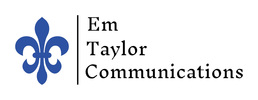
I have often heard that anger is merely a secondary emotion, which reflects some deeper emotion like fear. But what if our feelings of anger are valid in and of themselves for reflecting our unmet needs?
For example, just last night, I was so surprised by my sudden outburst of anger while my son tried unsuccessfully to create a password for an algebra self-help website. While the anger—in the form of shouting—leaped from my lips, I had not entered the homework helping situation irritated or angry in any way. Actually, after moderating a political discussion for the first time at our local library, I had returned home happy enough. I had just not been expecting an intense round of algebra questions past 10 p.m. after a thirty-year lapse in studying slope intercept form.
As my voice rose with shouts of silly things like, “Just make the password!” and “How can this take so long?!” I could see my son’s incredulity at my sudden loss of my cool. I shared his disbelief, but quickly remembered what I had been reading earlier yesterday morning: according to nonviolent communication, anger is a feeling that arises from unmet needs. I quickly turned inward to ask myself the following: what were my unmet needs in that moment? A few unmet needs easily came to mind: sleep, food, algebra advice from an expert, and so on.
This short, recent experience with my son, coupled with recent national politic strife, have influenced my outlook today. I asked myself the following two questions:
(1) What if I chose another way of dealing with anger rather than stifling it until I exploded?
(2) What if each of us got in tune with our feelings enough to understand what our unmet needs are so we could express needs rather than blame, accusation, and punishment towards others?
Responding to patterns of blame, punishment, and domination he experienced while working with angry social groups in the late 1960’s, the late Dr. Marshall Rosenberg first developed the principles of nonviolent communication, which address how to constructively express anger. Rather than stifle our anger, we use anger as a wake-up call about unmet needs in ourselves and others.
In nonviolent communication we use four to five steps to constructively express our anger.
First, we take time to stop and breathe.
We must stop in the moment before the momentum of fight and flight takes place. Neurologically speaking, we are wired to “survive” once we enter into this primal mode of anger. To counter the wave of survival instincts that kick in, we can learn to stay quiet and not make any sudden move to blame or accuse another person when we are angry. We may even need to temporarily remove ourselves from the situation to calm down, breathe, and think.
Second, we identify our judgmental thoughts.
Dr. Rosenberg actually suggests that we stay conscious of the violent thoughts that arise in our minds, without judging them. We exercise restraint in blaming and judging others or ourselves, but learn to translate our judgements, labels, and thoughts of blame about what people “should” do and what they “deserve” into unmet needs.
Third, we connect with our needs and expressly identify them.
We turn our thoughts from thoughts like “I don’t like people who are…..” to “”When I make that judgment of a person, what am I needing and not getting?” Rosenberg talks about framing our thinking in terms of unmet needs rather than in terms of judgments of other people.
As we begin developing the habit of translating our anger into unmet needs, we might even need a pen and paper to write things down. We might need a long walk to fully cool off and digest the fight or flight tendencies we have just experienced.
Fourth, we empathize with the subject/person of our anger.
Of course, I apologized to my son for shouting at him with my silly comments, but I also needed to empathize with his predicament to create a climate for sharing my own feelings and unmet needs. As I shared my own feelings of frustration about not understanding the math immediately, I could make a critical connection with him that soothed both of our feelings.
Empathizing with the subject of our anger may sound like an unreasonable expectation in the moment. Certainly, we may not be fully capable yet of full empathy in our minds and hearts, but we can imitate constructive behavior as a start. Just like smiling helps people feel more positive, calmly requesting insight into the other person’s experiences, thoughts, and feelings—using an appropriate tone of voice and non-threatening body language—can change hostility into a tense peace.
We can exercise restraint and ask good follow up questions to paraphrase and seek understanding from the person who has stimulated (but not caused) anger in us. Rosenberg reminds us that others may be the stimulus but never the cause of our negative reactions. We have to own the responsibility for how we react in anger.
Fifth, we express our feelings and unmet needs.
Without wasting energy on blaming or accusing the other person, we sincerely express our own feelings along with our unmet needs. We share specific, accurate personal feelings like “I feel overwhelmed” or “I am confused or surprised.” We then voice our current unmet needs that may range from largely physical necessities like sleep, air, exercise, or shelter to more complex, social needs like closeness, appreciation, belonging, honesty, love, or respect.
In my case, after I took time to stop, breathe, and evaluate my angry responses to my son’s homework request late at night, I could gently review each judgmental thought that filled my head and gradually replace it with an unmet need:
(a) The judgmental thought: “Why didn’t he ask his sister or dad while I was gone for help with his homework?” “Why did he save this for 10 p.m. with me?”
(b) Expressing my feelings and an unmet need: “I am exhausted and need sleep, will you please talk with your teacher tomorrow to get a better explanation than I can offer right now?”
a) The judgmental thought:” Why didn’t he take better notes in class? Why didn’t he pay attention when the teacher explained it to him?”
(b) Expressing my feelings and unmet need: “I wish that I remembered the slope intercept form better, but I need to have a refreshed mind to help you through all these problems.”
These steps to expressing anger through nonviolent communication processes take time and effort to apply in our daily lives. Yet they are worth our greatest efforts both at home, in the community, and across our country. As we address our own and other’s unmet needs in an empathetic and sincere way, we may slowly see the tide of change across a vast ocean of misunderstanding and hostility.
As we connect with who we really are and what we each need, we will find that we are much more alike than we are different. Accessing that common humanity may curb the appeal of turning outward to blame others rather than looking inward to identify and to fulfill our universal needs for connection, belonging, and harmony.

 RSS Feed
RSS Feed